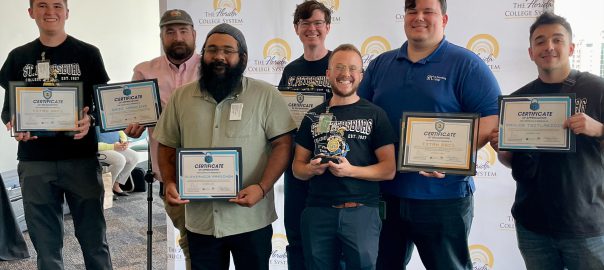St. Petersburg College’s TitanSec team earned an impressive third place in the Florida Department of Education’s third annual Florida College System (FCS) Cybersecurity Competition.
The competition brought together students from across Florida’s 28 public colleges to test their expertise in a virtual cyber range, simulating real-world network defense challenges faced by industry professionals.
SPC’s TitanSec showcased exceptional technical skill, problem-solving and teamwork as they competed against other top-performing colleges. All participating students also received a cyber range certification provided by Global Business Solutions, Inc.
Florida’s community colleges continue to play a vital role in preparing the next generation of cybersecurity professionals — with nearly 4,500 students enrolled in cybersecurity programs across the system.
“Witnessing these students tackle complex cybersecurity challenges has been truly impressive,” said Commissioner of Education Anastasios Kamoutsas. “Their ingenuity, perseverance and critical thinking skills demonstrate that Florida is cultivating a strong cybersecurity pipeline.”
The event was made possible through support from the Florida Department of Education, the Florida College System Foundation, the Florida Student Success Center, Cyber Florida and other partners.
Congratulations to the TitanSec students and faculty mentors for representing SPC with excellence in this competitive and fast-growing field!



